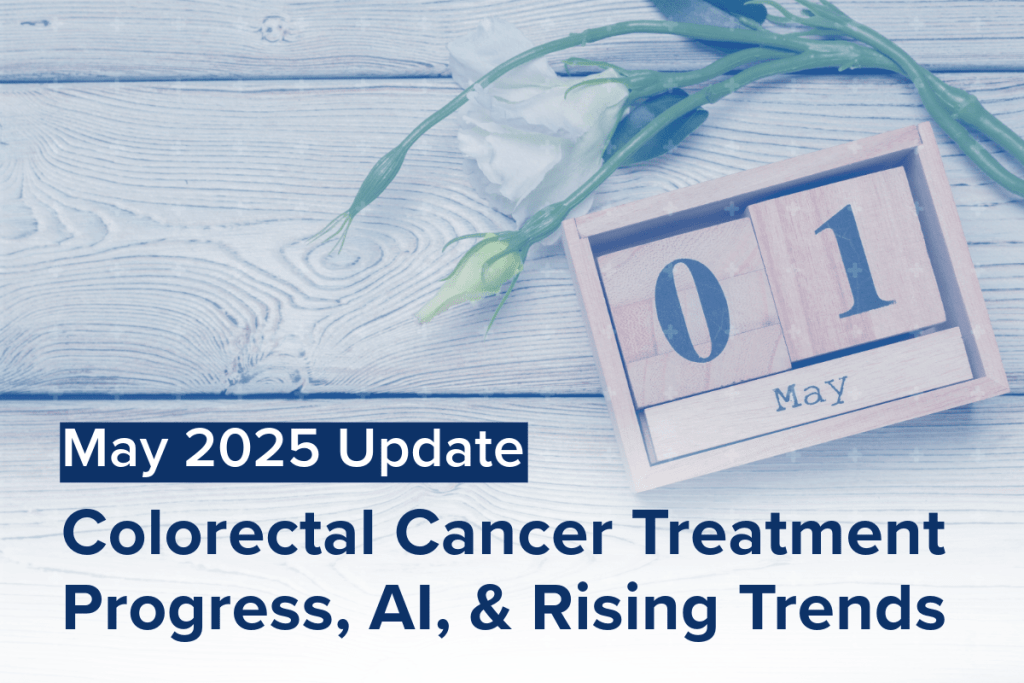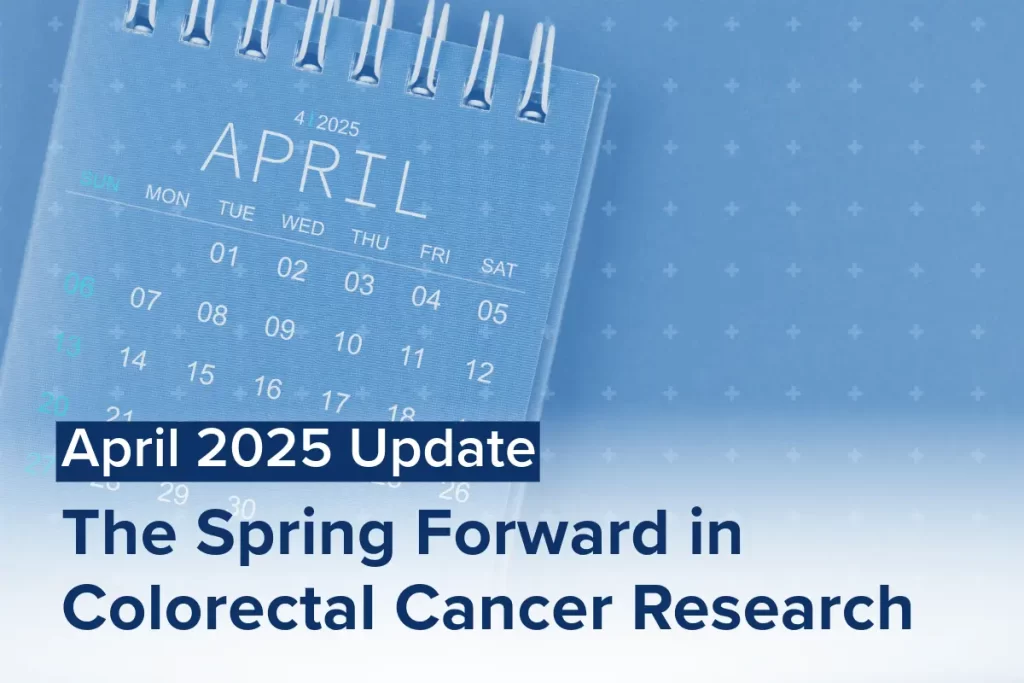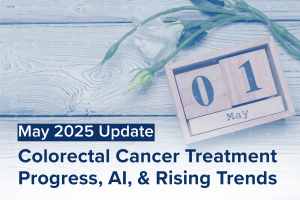Table of Contents
ToggleSchedule Your Procedure Today
- All-Inclusive Service
- Board-Certified Physicians
- Transparent Pricing
The month of May is witnessing pivotal changes in the fight against colorectal cancer, with potential ramifications for millions. AI is being adopted for enhanced polyp detection in medical settings, while new drugs demonstrate promise in treating advanced stages of the disease.
However, this progress occurs alongside worrying data indicating a rise in colorectal cancer among younger adults, compounded by proposed federal budget cuts that risk weakening vital prevention efforts.
Smart Technology Transforms Colonoscopy Procedures
Doctors are now using computer-assisted tools to find more polyps during colonoscopy procedures. These tools scan colonoscopy images in real-time and highlight suspicious findings with a green square, helping doctors spot polyps that might otherwise be missed.
Fred Hutch medical center has implemented this technology in all their procedures. The system works like a “co-pilot” for doctors, improving their ability to detect potential cancer before it develops.
Good News for Patients: Prep Gets Easier
A new study presented at Digestive Disease Week 2025 challenges old rules about fasting before colonoscopies. Research shows that eating a light meal two hours before starting colonoscopy prep doesn’t harm the cleaning process.
Among 525 patients tested, those who ate achieved nearly identical results to those who fasted completely. This finding could make colonoscopy preparation more comfortable for millions of patients.
Less Surgery, Better Outcomes
More doctors are removing polyps during colonoscopies instead of through surgery. Between 2015 and 2023, this approach nearly tripled while surgical removal declined.
The shift has resulted in fewer complications and lower death rates. This means safer care and easier recovery for patients with non-cancerous polyps.
New Guidelines for Follow-Up Care
Updated colonoscopy guidelines took effect on May 1, 2025, providing clearer direction on when patients should return for follow-up exams. The new recommendations are based on the number, size, and type of polyps found.
For average-risk patients with no polyps, the next colonoscopy is recommended in 10 years. Those with multiple or larger polyps may need to return in just 3 years.
Breakthrough Treatment Shows Promise for Advanced Cancer
A new drug called CX-2051 is showing remarkable results for patients with advanced colorectal cancer. In a recent trial, the drug achieved a 28% response rate in patients who had already tried multiple treatments.
At the highest dose tested, 43% of patients saw their tumors shrink. This offers new hope for those with limited treatment options.
Custom Vaccines Fight Treatment-Resistant Cancer
Researchers at MD Anderson Cancer Center are developing personalized vaccines for patients with hard-to-treat colorectal cancer. The approach, called NeoAg-VAX, stimulates the immune system to attack cancer cells.
Early results show the vaccine is safe and creates strong immune responses in most patients. This could help overcome resistance to standard immunotherapy treatments.
Rising Cancer Rates in Young Adults Remain a Concern
While overall colorectal cancer rates are declining, cases among adults under 50 continue to rise at an alarming rate. The American Cancer Society estimates approximately 154,270 new cases will be diagnosed in 2025.
For individuals younger than 50, rates have increased by 2.4% per year from 2012 to 2021. About 10% of all diagnoses now occur in this younger age group.
Blood Test Offers Screening Alternative
New blood-based screening tests are gaining popularity as alternatives to a colonoscopy. The Shield blood test, approved in 2024, is recommended every three years for average-risk adults starting at age 45.
These tests offer a convenient option for people who avoid traditional screening. A positive result still requires follow-up with colonoscopy.
Lifestyle Factors: Alcohol Consumption Linked to Higher Risk
New research shows that lifetime alcohol consumption significantly affects colorectal cancer risk. Current drinkers who consume an average of 14 or more drinks per week have a 25% higher risk compared to those who drink less than one per week.
The increased risk is particularly notable for rectal cancer. This provides clear evidence for the importance of moderating alcohol consumption.
Budget Cuts Could Threaten Progress
Proposed federal budget cuts could undermine decades of progress in cancer prevention and treatment. The President’s budget for Fiscal Year 2026 includes a 26.2% cut to the Department of Health and Human Services and a 37% cut to the National Institutes of Health.
The American Cancer Society’s advocacy network is fighting these cuts, warning they would threaten cancer patients’ lives. They are particularly concerned about potential Medicaid reductions.
Future Outlook
Due to screening success, colorectal cancer is expected to drop from its current position as the second leading cause of cancer death by 2030. Pancreatic cancer is projected to take its place due to fewer advances in early detection.
The fight against cancer requires ongoing dedication to scientific discovery and public health initiatives.
Disclaimer
Before making any decisions regarding anesthesia, sedation options, colonoscopies, or any medical procedure, always consult with your physician, anesthesiologist, or qualified healthcare provider. This article should not be used as a substitute for professional medical advice, diagnosis, or treatment.
EXCELLENT rating
Based on 2125 reviewsTrustindex verifies that the original source of the review is Google. I was referred to ColonoscopyAssist through my healthcare sharing ministry. They communicated with me every step of the way and were a lower-cost solution to getting a colonoscopy since my preventative screenings aren't covered. I got mine done through a very reputable endoscopy group and they were wonderful.Trustindex verifies that the original source of the review is Google. The entire process was seamless and the staff was friendly and professional. Overall. I had a wonderful experience at your facility.Trustindex verifies that the original source of the review is Google. After the initial, sign up with ColonscopyAssist, it took about 2-3 weeks to get a call from doctors office and appt was 2 weeks later. Everything went smoothly, the doctor was not personable but was professional. Glad it is done. Now my husband has peace of mind.Trustindex verifies that the original source of the review is Google. Simple and easy with great savings.Trustindex verifies that the original source of the review is Google. ColonoscopyAssist was very helpful, responsive, and made the process happen smoothly, not to mention made the procedure much more affordable.Trustindex verifies that the original source of the review is Google. This was as easy as it could have been! Competent and Professional are words that come to mind. This is a great program. From beginning to end it proceeded without a glitch!Trustindex verifies that the original source of the review is Google. Everything worked well before, during and after procedure. Got lots of information. Only ask to upgrade the guide when people are taking tables and not a liquid prep.Trustindex verifies that the original source of the review is Google. very professional and friendly service, everything was organized and I was advised on all the steps. they made this process simple.

















